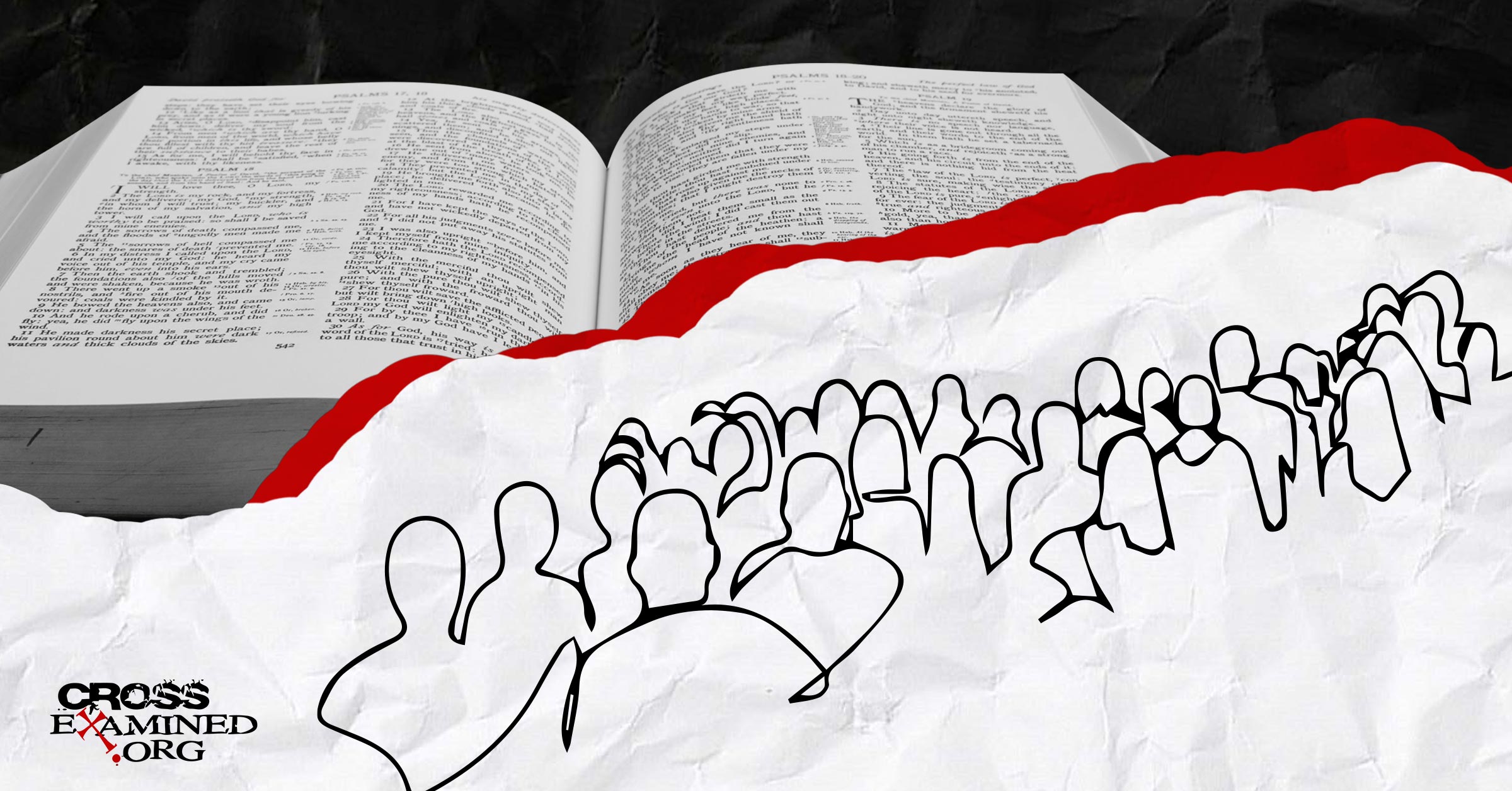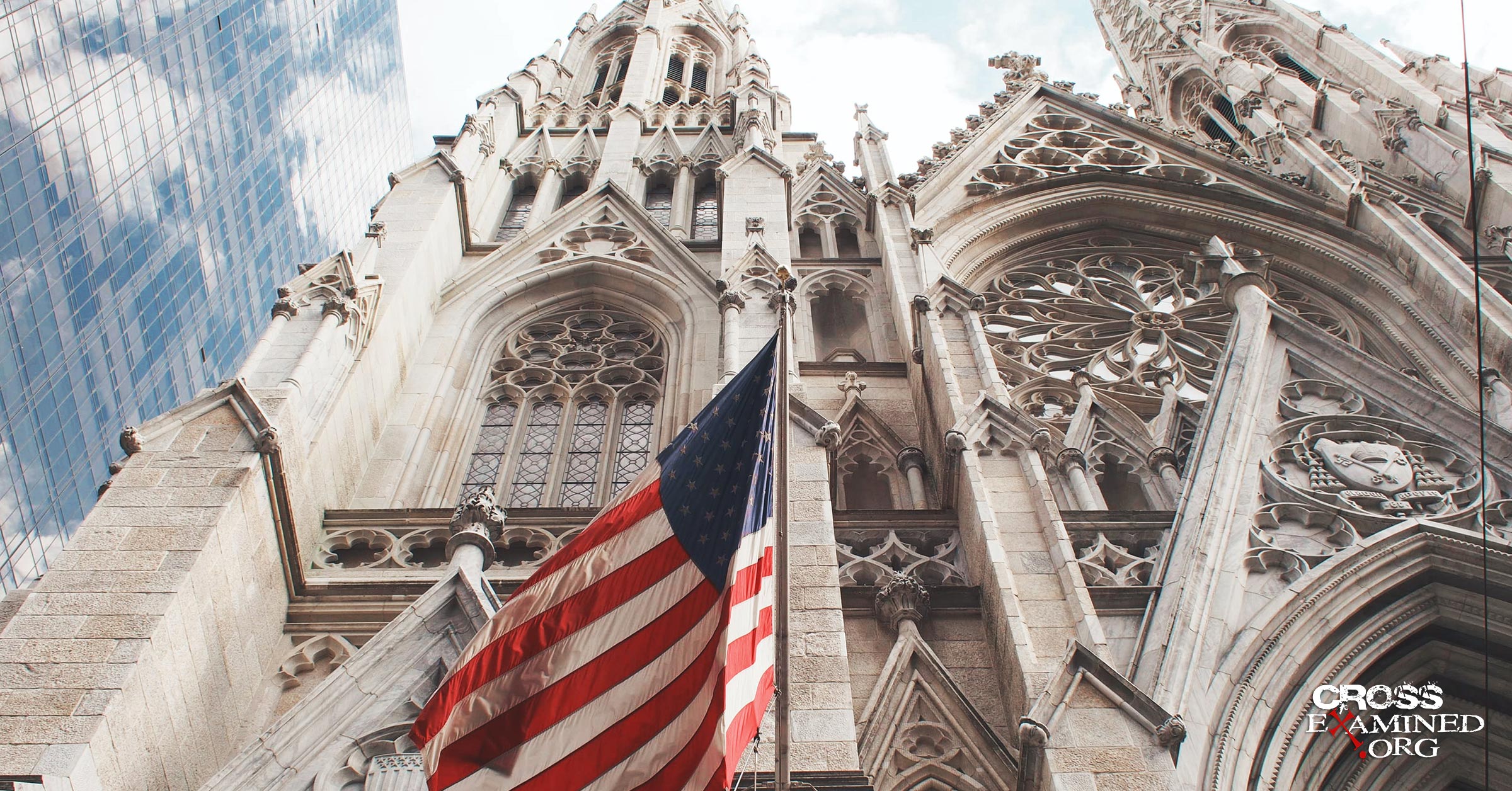We’ve been duped.
I cannot think of another way to put it. The Christian right has been duped.
Deceived by what? You may ask.
The separation of Church and State.
What if I told you that the phrase “separation of Church and State” was found nowhere in the constitution or the Bill of Rights?
It’s true.
Now, we’ve constantly been told that the first amendment of the Constitution is where we get the phrase. But how? And was it to protect the Church or the State?
Commonly, the ACLU and other left-wing advocates have indicated that separation of Church and State is meant to keep religious speech and thought out of the public sphere. They argue that individuals with deeply held religious beliefs should not let their religious morals dictate their policies. Of course, this all comes to a head as Donald Trump is appointing a devout Catholic with a record on pro-life rulings to the Supreme Court. Long time Senator Dianne Feinstein implicated that such beliefs were a danger to the constitution when she said to Barrett, “The dogma lives loudly within you,”[1] whatever that means. The argument of course only applies to those on the right side of the aisle. Those on the left are encouraged to use their voices and religion to convince the masses. For instance, Mayor of South Bend, Pete Buttigieg constantly used his religious opinions to back up his political motives[2]. Advocates for nationalized healthcare have also often used religious language to advocate for the socialization of the healthcare system. But when it comes to voices speaking out against abortion or for individual responsibility based on scripture charges of conflating “church and state” abound. And too many have been duped into believing that to be the case.
Churches have been sidelined in many a political discourse at the use of the words “separation of Church and State.” Prayers before football games have been cause for litigation since the 1990s[3]. Churches threatened with the loss of tax-exempt status for entering the political sphere[4] and non-prophets have been threatened as well. Public schools have been shamed into eliminating public prayer before events and again, the hot button topic of the day is the religious affiliation of a future Supreme Court justice.
But what does “separation of Church and State” mean? Where did it come from? Why is it important? And, as a Christian, is it really not okay to use our faith in determining political engagement? And where is the pastor’s role in all of this?
These are important questions in this day and age, and for too long the Church has abdicated the responsibility for answering these questions to the public sphere.
Where does “separation of Church and State” come from? And what was its purpose?
Many might say it comes from the constitution. They are wrong. That does not mean the concept does not reside in the constitution. It does. However, to adequately understand what the term was meant to establish one must know where it comes from what part of the constitution is it derived.
The term itself was coined by Thomas Jefferson in a letter that he wrote to the Danbury Baptists in 1802 in which he commends the first amendment and implies that it is the Church, not the State, that is sought to be protected by it. He says, “…I contemplate with sovereign reverence that acts of the whole American people which declared that their legislature should “make no law respecting an establishment of religion, or prohibiting the free exercise thereof,” thus building a wall of separation between Church and State.”[5]
The history of the conversation is even more interesting. The Danbury Baptists were concerned about their religious freedom and penned a letter to Jefferson prior to his inauguration into office. Jefferson’s response was to insure them that the practice of religion was, in fact, an inalienable right guaranteed by the first amendment of the constitution.
The term then became codified as part of the First Amendment jurisprudence of the Supreme Court in 1878. Thus, the confusion for many that it is a part of the constitution when the words do not appear in the writings.
But what does all of this mean?
It simply means that, as Jefferson wrote to reassure the Danbury Baptists, the desire to not establish a national religion was an effort to protect the Church (religions), not the State.
In other words, our public discourse has missed the point. It is not to separate religion from government completely, but to separate governmental control from religion completely. Protect people’s right to worship, not to protect the government’s atheism because, as we shall see, the government was not intended to be run atheistically.
And this principle was understood by the founding fathers.
They knew that a nation built on the fundamental idea that God (the creator) endowed each individual with inalienable rights must incorporate religious thought and ethics in the way it governed. That is, in fact, a religious statement!
John Adams famously said this in a letter in 1798 “Because we have no Government armed with Power capable of contending with human Passions unbridled by – morality and Religion. Avarice, Ambition – Revenge or Gallantry, would break the strongest Cords of our Constitution as a Whale goes through a Net. Our Constitution was made only for a moral and religious People” (emphasis mine).[6]
Two of the authors of the constitution seem to indicate the opposite of our current civil discourse. The guiding of our government can only be adequately done through moral and religious convictions. The freedom to worship is not a positive right given by our government, it is a negative right given us by our Creator. The government’s role is not to tell us who or what we ought to worship, or how, but to protect our God-given rights to worship.
So what sense does it make then that government would make any statements curbing speech or reference to God (any god for that matter) in a public setting? Also, given the history of our constitutional writers, would they not be pleased with the selection of justices that exhibit a moral and religious standing?
Would the founding fathers be opposed to public discourse that not only mentioned God but also offered to worship God? According to Jefferson and Adams, they would not. The only objection they may have is if the government made a law that forced others to worship a certain way.
How then should Christians and the Church act politicly?
It is clear, at least to me, that the above evidence (and there is plenty more, but for the sake of space we will rest the case there) would indicate not only a prohibition on the government from intervening in worship but also an encouragement from government for religious entities to engage with politics.
Religious institutions, churches, pastors, and the like should be outspoken and engaged politically. So long as no laws are being passed to infringe on a person’s right to worship whomever or whatever they choose then religious engagement should be robust, not anathema.
But, as Christians, we are not bound to the constraints of the constitution but by the constraints of scripture. How ought we engage in public life in a way that is honoring to God? Just because it is legal does not mean it is biblical.
This is a difficult question to answer, in part because the cultural context of 1st century Rome is so politically different than 21st century America, as well as the ambiguity with which Jesus carried himself on political matters. However, I do think there is a solid biblical precedent for the believer to follow.
On a personal and a corporate level, I believe the engagement can look very similar.
As a Pastor, I seek to understand what the leadership in the church did politically throughout the scriptures. First, I see a group of believers that were fairly apolitical but also understood their role as citizens. Romans 13 and 1 Peter 2 both indicate that a humble submission to the authorities is necessary to maintain a good witness as well as to best glorify God. However, Acts 5 would indicate that there are exceptions to this sort of submission. Those exceptions take place when the government is dictating that we must not worship our God and/or dictates that preaching the gospel is antithetical to the government’s legal system. In both cases, it seems clear throughout scripture that disobedience of man-made institutions to glorify God is not only acceptable but required.
Given what was established by the constitution, it seems that the freedom we experience in this country is a cause for celebration and humble submission to our governmental authorities, but it also means that we ought not abdicate our political responsibilities at a personal or corporate level.
The laws of our great nation were meant to encourage interaction with the political sphere from the religious sphere. The religious sphere was expected to influence the political sphere, though the political sphere was to refrain from influencing the religious!
For far too long we have let empty words about supposed Christian political ethics bind our consciences. Religion was always intended to be the bulwark of the American social fabric. Thus, as Christians, we should feel free to engage with politics on a religious level.
Whether or not to be overtly political from the pulpit or from within a religious organization then transfers not from a Romans 13 issue but to a Romans 14 issue. This is an area where each individual congregation must make its decision, but to forbid all churches from acting in politics seems unconstitutional and unbiblical.
As a pastor, I also seek to take my cues from the Apostle Paul on this matter. He was not afraid to use his political rights as a citizen of Rome to protect himself and further the gospel (Acts 22:22-29). Why are we so hesitant to exercise our rights? Rights given by God and recognized by the American Constitution are far more available to us than they were to Paul?
Because we have been told that we are not good Christians if we are also patriotic. Now, there is an argument that can be made and should be made, for those that put their country above their God. This dogmatic patriotism is a form of idolatry and thus, a sin.
But these are not the people I am addressing in this section.
It is not anti-Christian to be pro-American (see, Should Christians Be Against Christian Nationalism?). I do think that Christians ought to be honest about the moral failings of America’s past and present; however, to be a proud citizen of the country and to participate in that citizenship appropriately is not only good but godly. Paul exemplified this for us through his life and writings. He was a proud Roman but not without a critique of Roman culture when it cut against the grain of God’s holiness. Yet somehow, there is a movement seeking to convince the Christian right that any sort of patriotism is idolatry and that exuberant participation in the American system of government is complicity in all its evils, real or imaginary. Of course, the same standard is not set for the Christian left, which would laud the abhorrent practices of abortion and gender transitioning among children within our own culture.
In a sense, the use of “separation of Church and State” as a political weapon against Christians has been effective. No loving Christian worth his or her salt would endeavor to be considered politically motivated in their religious practices and ideology, so we tend to take the critiques to heart and placate the complaints with mea culpas aplenty. It is time that we stand for our rights as citizens of America and as godly disciples within that same vein.
This means a thoughtful and robust engagement with politics from a Christian perspective should be expected from our churches, and not simply the churches that correspond with the popular liberal narratives. We must no longer be afraid of the charge of politicization of the gospel when, in fact, it is in standing for the gospel that we embrace the political realm, especially in America. In no other land throughout history and time has the Christian been given such a lofty platform as the platform of the first amendment.
Like Paul, who used his Romans citizenry as a means to explicate the gospel throughout the empire, we also must seek to use our American citizenry to freely and unapologetically declare the truth to the masses. If we are condemned for doing good amidst our national discourse, then we have fulfilled 1 Peter 2 in its fullness.
It is not only within our rights as citizens of this country to fight back against the misuse of the first amendment against religious institutions; it is also liberty afforded to us through scripture and the example of other godly people that came before us. Let us not acquiesce to the loud narratives about what churches can and cannot do amidst the political landscape, but let us boldly preach the gospel and the truth of biblical justice and morality in accordance with scripture and in submission to the original authors of our nation’s founding document. In doing so, we do not espouse hypocrisy, nor do we cheapen the gospel through politics. In fact, I would argue that scripture indicates the opposite of those charges is true. If we are to be salt and light, we must be salt and light in all spheres of culture. Preserving the good and exposing the vile for that is what we use salt and light to accomplish, yes, even in and perhaps especially in the political realm.
Notes
[1] https://www.washingtonpost.com/video/politics/feinstein-the-dogma-lives-loudly-within-you-and-thats-a-concern/2017/09/07/04303fda-93cb-11e7-8482-8dc9a7af29f9_video.html
[2] https://www.cnn.com/2019/08/16/politics/pete-buttigieg-religious-journey/index.html
[3] https://www.aclu.org/press-releases/aclu-sues-ohio-school-district-over-football-team-prayers
[4] https://www.irs.gov/newsroom/charities-churches-and-politics
[5] https://www.loc.gov/loc/lcib/9806/danpre.html
[6] https://founders.archives.gov/documents/Adams/99-02-02-3102
Recommended resources related to the topic:
The Case for Christian Activism MP3 Set, DVD Set, mp4 Download Set by Frank Turek
American Apocalypse MP3, and DVD by Frank Turek
Correct, NOT Politically Correct: How Same-Sex Marriage Hurts Everyone (Updated/Expanded) downloadable pdf, Book, DVD Set, Mp4 Download by Frank Turek
You Can’t NOT Legislate Morality mp3 by Frank Turek
Fearless Generation – Complete DVD Series, Complete mp4 Series (download) by Mike Adams, Frank Turek, and J. Warner Wallace
Josh Klein is an ordained minister from Omaha, Nebraska with 12 years of ministry experience. He graduated with an MDiv in 2016 from Sioux Falls Seminary and spends his spare time reading and engaging with current and past theological and cultural issues. He has been married for 12 years to Sharalee Klein and they have three young children.
Original Blog Source: https://cutt.ly/NgPSSpJ












